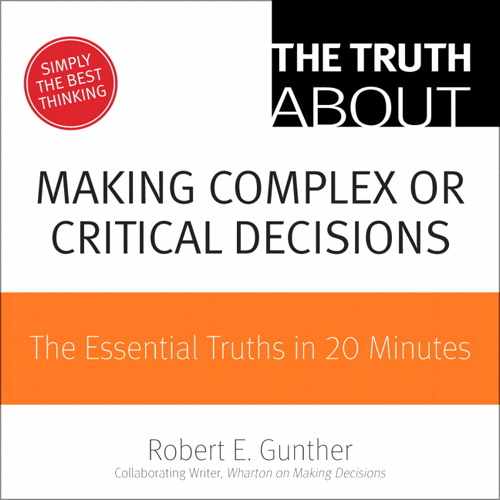TRUTH 7 No decision is an island
Your decisions affect the world around you, which, in turn, affects the value of your decisions. Confused? Consider this question: Is it a good idea to wear a bicycle helmet? This seems like one of the simplest decisions. A no-brainer (literally). Helmets protect your skull and make it more likely that you will survive a crash. But among cyclists who ride on city streets, there is also a belief that wearing a helmet makes you more likely to be hit by a car.
Are these cyclists crazy? It turns out that maybe they aren’t. Ian Walker, a psychologist at the University of Bath, decided to put these competing theories to the test.4 He rigged up his bike with sensors and took to the roads. His experiment—comparing rides with a helmet to those without—found that motorists gave him a wider berth when he had no helmet. They passed more than 3 inches closer when his head was protected. So putting on safety gear actually increased his risk of being hit. Walker theorized that drivers viewed cyclists with helmets as more experienced and so required less caution. He reached the controversial conclusion that it might actually be safer to leave his helmet behind.
Our actions change the world around us. Werner Heisenberg found that it was impossible to know the position and momentum of an electron because the very act of measuring changes it. This “observer effect” contributed to quantum physics, which is based on probabilities rather than the more straightforward Newtonian universe.
Our actions and decisions change the world around us. We need to be aware of how these changes affect the environment and how the environment affects the outcome of the decision. It may have been a great decision for Monsanto to create genetically modified seeds and foods, but the benefits were substantially diminished when activists labeled such products “Frankenfoods” and actively opposed them. No decision is made in a vacuum, and there are ripple effects that can change the outcome. Sometimes the environment contains tractor-trailer drivers who are making their own decisions about how to react to a cyclist on the road ahead. This means that straightforward decisions such as wearing a bicycle helmet may not be so simple after all.
In making a decision, consider others who will be affected by the decision. What will be their reaction? How could this reaction change the outcome of the decision? Can you shape or change those reactions? (In his bicycle helmet study, Walker suggested mounting a government advertising campaign to urge motorists to give helmeted cyclists just as much space on the road.) Is your original decision still a good decision given these expected reactions?
